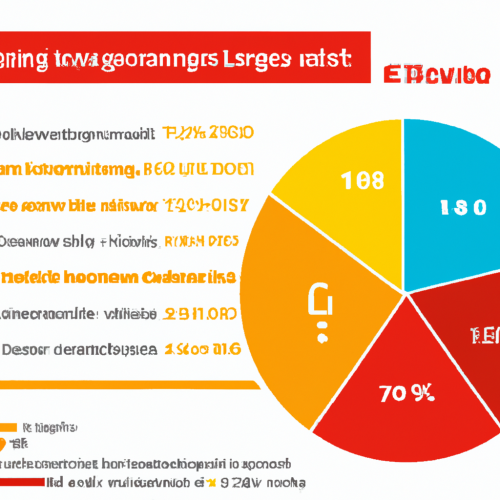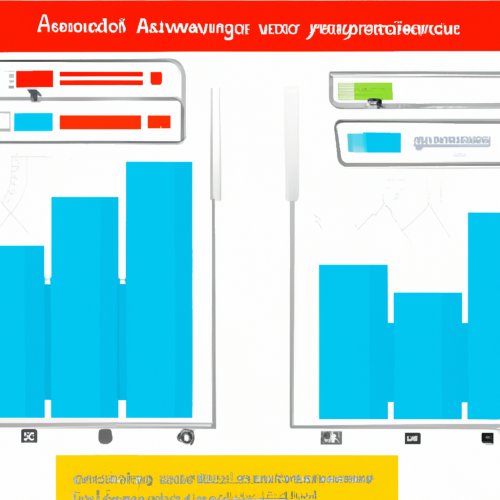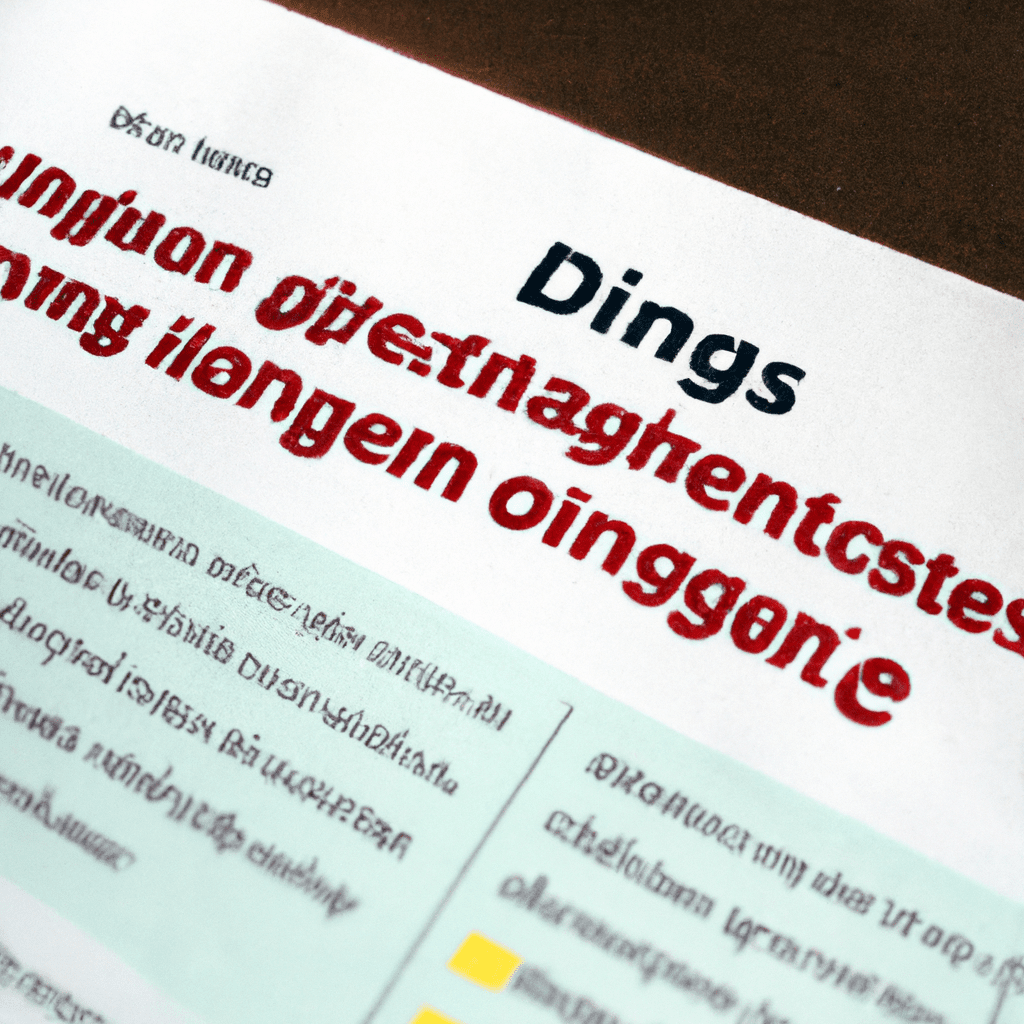Germany, renowned for its economic stability and high standard of living, has long fascinated people from around the globe. However, for those considering a move or extended stay in this European powerhouse, it is crucial to have a solid understanding of Germany’s living expenses. From housing and utilities to groceries and transportation, this article aims to provide an informative insight into the various aspects of daily life costs in Germany. By examining the key factors that contribute to the overall cost of living, readers will gain a neutral understanding of what to expect when navigating Germany’s living expenses. Whether one is planning to study, work, or simply explore the country as a visitor, this article offers a comprehensive starting point to better comprehend the financial landscape awaiting them in Deutschland.
1. Overview of Germany’s Cost of Living: Key Factors and Affordability
Germany is a diverse and vibrant country, known for its rich history and thriving economy. When considering a move to Germany, it is crucial to understand the cost of living and the factors that contribute to it. This overview aims to provide you with valuable insights into key factors affecting Germany’s cost of living, enabling you to make informed decisions about affordability.
1.1 Housing Costs
Housing costs in Germany can vary significantly depending on the city or region you choose to live in. Major cities like Berlin, Munich, and Hamburg tend to have higher rental prices compared to smaller towns. It is worth considering options such as shared accommodations or suburbs to reduce housing expenses. Overall, German housing costs are influenced by factors such as location, amenities, and the size of the property.
1.2 Transportation Expenses
Germany boasts a well-developed public transportation system, making it relatively affordable and convenient to get around. Depending on your location and travel requirements, you may opt for a monthly or annual public transportation pass, which can save you money compared to individual tickets. Owning a private vehicle comes with additional expenses such as fuel, insurance, and maintenance, which should be factored into your cost of living analysis.
1.3 Daily Expenses and Groceries
When it comes to daily expenses and groceries, Germany offers a wide range of options to suit every budget. Discount supermarkets like Aldi and Lidl provide affordable groceries, while higher-end options like Edeka and Rewe offer a broader selection. It is advisable to compare prices and shop smartly to manage your living costs effectively. Additionally, eating out in Germany can be reasonably priced, especially when choosing local eateries or street food stalls.
Being aware of these key factors influencing the cost of living in Germany will help you plan your budget better and make informed decisions. By considering various alternatives and searching for affordable options, you can ensure a comfortable and economically sound life in this fascinating country.

2. Housing Expenses: Understanding Rental Prices and Utilities in Germany
When it comes to renting a place in Germany, it’s essential to grasp the factors that influence rental prices and the additional costs you might incur for utilities. Here are some key points to help you navigate the housing expenses in Germany:
Rental Prices:
- Location matters: Just like in many other places, the location of the property plays a significant role in determining its rental price. Metropolitan areas tend to be pricier, while smaller towns and rural areas offer more affordable options.
- Property size and amenities: Larger apartments or houses with additional features like balconies or parking spaces generally come with a higher monthly rent. Assess your needs carefully, as you might need to strike a balance between space and budget.
- Market demand: The fluctuating demand for rental properties can impact prices. In popular cities, where demand often exceeds supply, you might encounter higher rent prices and intense competition for suitable accommodations.
Utilities:
Understanding the utility costs associated with your potential rental is crucial for budgeting your housing expenses:
- Heating, water, and electricity: In Germany, tenants typically pay for these utilities separately. Be aware that heating costs, in particular, can be significant, especially during the colder months. It’s advisable to inquire about previous utility bills to estimate the potential costs accurately.
- Internet and television: While not considered essential utilities, internet and TV services are usually arranged and paid for by the tenant. There are several providers to choose from, offering various packages to suit your communication and entertainment needs.
- Garbage disposal: Depending on your location, you may need to pay for waste disposal services. This cost is often either included in the monthly rent or billed separately.
It’s important to thoroughly research and compare housing options to ensure you find a suitable rental place within your budget. Understanding the rental market, associated costs, and calculating your potential monthly expenses will help you make more informed decisions when it comes to housing in Germany.
3. Daily Necessities: Food, Transportation, and Essential Costs in Germany
When it comes to daily necessities in Germany, there are a few key factors to consider: food, transportation, and essential costs. Let’s take a closer look at each of these components:
Food
Germany is known for its delicious cuisine, and whether you’re a fan of hearty sausages or mouthwatering pastries, there is something for everyone. The cost of food in Germany can vary depending on where you shop and whether you opt for dining out or cooking at home. To save money, consider exploring local farmer’s markets, where you can find fresh produce at reasonable prices. Additionally, take advantage of discount supermarkets like Aldi and Lidl that offer an extensive range of affordable groceries.
- Explore local farmer’s markets
- Consider discount supermarkets like Aldi and Lidl
- Try traditional German cuisine
- Experiment with cooking at home
Transportation
Germany has an excellent transportation system, making it easy to get around the country. The most common modes of transport are trains, buses, and trams, all of which are efficient and well-connected. For daily commuting, consider purchasing a monthly or yearly public transportation pass, which can save you money in the long run. Car-sharing services and biking are also popular options in many German cities, providing a convenient and eco-friendly way to navigate your surroundings.
- Invest in a monthly or yearly public transportation pass
- Utilize car-sharing services
- Consider biking for shorter distances
- Embrace Germany’s efficient transportation system
Essential Costs
Aside from food and transportation, it’s important to be aware of other essential costs in Germany. Rent, utilities, and healthcare are among the top expenses. The cost of housing can vary significantly depending on the city and neighborhood, with major cities like Berlin and Munich being more expensive than smaller towns. It is crucial to budget carefully and explore different options to find the most suitable accommodation. Additionally, Germany has a mandatory healthcare system, so it’s important to factor in health insurance costs when planning your daily expenses.
- Research housing options and prices carefully
- Factor in health insurance costs
- Be mindful of utility expenses
- Plan your budget accordingly
4. Healthcare Costs: Insights on Insurance, Medical Services, and Medication
In today’s healthcare landscape, understanding the complexities of healthcare costs is essential for individuals and families. From insurance plans to medical services and medication, the financial aspects of healthcare can often be overwhelming. In this section, we aim to provide you with valuable insights to navigate the realm of healthcare costs effectively.
Insurance:
Choosing the right insurance plan can play a significant role in managing healthcare costs. Here are a few insights:
- Research different insurance providers and compare their coverage and premiums.
- Consider your healthcare needs and opt for a plan that aligns with your requirements.
- Understand key terms like deductibles, copayments, and out-of-pocket maximums to make informed decisions.
- Review your insurance plan annually to ensure it still meets your needs and is cost-effective.
Medical Services:
When it comes to medical services, being an informed consumer is vital. Keep these points in mind:
- Shop around for medical services, such as diagnostic tests or procedures, to compare prices and find the most affordable option.
- Consider utilizing telemedicine services for non-emergency consultations, as they can be a cost-effective alternative to in-person appointments.
- Ask your healthcare provider about generic alternatives for prescription medication, which are often more affordable than brand-name options.
- Regular preventative care can help you save money in the long run by detecting health issues early and avoiding extensive treatments.
Medication:
Managing medication costs can be challenging, but with a few strategies, you can alleviate the financial burden:
- Discuss medication affordability concerns with your healthcare provider, who may be able to suggest lower-cost alternatives or identify patient assistance programs.
- Research different pharmacies and compare medication prices, as prices can vary significantly.
- Consider prescription discount coupons or savings cards that can provide valuable cost savings.
- Always review your medication plan coverage and assess if there are any cost-saving options available.
By keeping the above insights in mind, you can become a more informed healthcare consumer, making wiser choices regarding insurance, medical services, and medication. Empowering yourself with knowledge is the first step towards managing and reducing the often daunting healthcare costs we encounter in life.
5. Education and Childcare Expenses: Investing in Quality Education in Germany
Germany is renowned for its high-quality education system, making it an attractive destination for families seeking exceptional educational opportunities for their children. However, it is important to note that investing in education and childcare in Germany involves certain expenses. By understanding and planning for these expenses, families can ensure that their children receive the best possible education.
Here are some key factors to consider when budgeting for education and childcare expenses in Germany:
- Tuition Fees: While most public schools in Germany are tuition-free, private schools may charge tuition fees. These fees can vary greatly depending on the institution and the level of education. It is crucial to research and compare different schools to determine the most suitable option for your child’s needs and your budget.
- Books and Supplies: Apart from tuition fees, families should also budget for textbooks, workbooks, and other materials necessary for the educational curriculum. Many schools provide book lists or recommend specific suppliers, which can help parents plan for these additional expenses.
- Childcare Costs: For families with younger children, childcare expenses are another aspect to consider. Whether it’s enrolling in a daycare center or hiring a qualified nanny, these costs can significantly impact the overall budget. Researching different childcare options and comparing prices can help families make informed decisions.
Investing in quality education and childcare is crucial to ensure the holistic development of children. By understanding the various expenses involved, parents can make informed financial choices and provide their children with the best educational opportunities that Germany has to offer.
6. Personal Finance Tips: Saving Strategies and Frugal Living in Germany
Managing your personal finances can be a daunting task, but with the right strategies and a frugal mindset, saving money and living within your means becomes a lot easier. In Germany, where the cost of living can be quite high, it’s crucial to adopt effective saving strategies. Here are a few tips to help you achieve financial stability:
- Create a budget: Start by calculating your monthly income and expenses. Identify areas where you can cut back and allocate a certain amount for savings. Tracking your spending will help you stay on top of your finances and ensure you’re not overspending.
- Avoid unnecessary expenses: While it’s nice to treat yourself occasionally, it’s essential to differentiate between wants and needs. Before making a purchase, ask yourself if it adds value to your life and if you truly need it. Focus on prioritizing your needs over wants to save money in the long run.
- Embrace a minimalist lifestyle: Living frugally doesn’t mean sacrificing happiness. Embracing minimalism can help you declutter your life while also saving money. Evaluate your possessions and consider selling or donating items you no longer need. By simplifying your life, you’ll reduce the urge to buy unnecessary things and be more content with what you have.
Additionally, take advantage of financial tools available in Germany that can help amplify your savings:
- Utilize high-interest savings accounts: Look for banks or financial institutions that offer higher interest rates on savings accounts. This will allow your money to grow over time and generate passive income.
- Invest in low-cost index funds: Explore investment options that offer low management fees and broad market exposure, such as index funds. This can be a great way to maximize your long-term savings without high transaction costs.
- Take advantage of discounts and loyalty programs: Many stores and services in Germany offer discount programs or loyalty cards. Sign up for these programs and take advantage of discounts to save money on your regular purchases.
Remember, saving money is a gradual process, and it requires discipline and perseverance. By following these tips and adopting a frugal lifestyle, you’ll be well on your way to financial stability and long-term financial success in Germany.
To Conclude
In conclusion, gaining insight into Germany’s living expenses is essential for anyone considering living or studying in this vibrant country. As we have seen, while Germany boasts a high standard of living, it is also accompanied by a relatively high cost of living. Housing, transportation, groceries, and healthcare expenses can constitute a significant portion of one’s budget. However, it is worth noting that Germany also offers numerous opportunities for financial aid, affordable accommodation, and reasonably priced public transportation. By carefully planning, budgeting, and exploring various cost-saving strategies such as sharing living arrangements or cooking at home, it is possible to manage living expenses effectively in Germany. Ultimately, understanding the nuances of Germany’s living costs enables individuals to make informed decisions and fully immerse themselves in this remarkable country’s rich culture and exceptional offerings.





